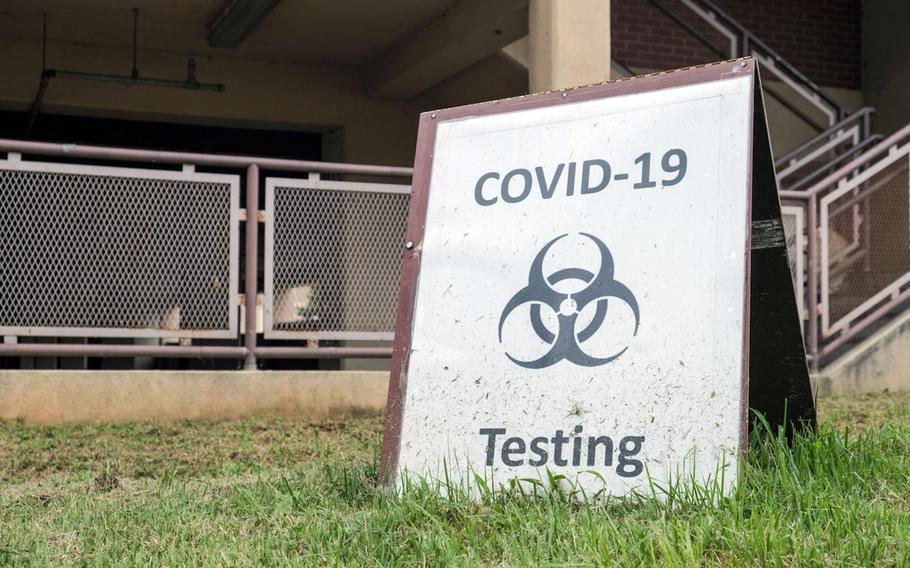
South Korea on Monday, July 25, 2022, reinstated its requirement that travelers take a PCR test within one day of arriving in the country, a change from a three-day window. (Stars and Stripes)
Stars and Stripes is making stories on the coronavirus pandemic available free of charge. See more stories here. Sign up for our daily coronavirus newsletter here. Please support our journalism with a subscription.
CAMP HUMPHREYS, South Korea — U.S. military travelers arriving in South Korea must immediately take a polymerase chain reaction, or PCR, test for COVID-19, according to a policy update by U.S. Forces Korea on Monday.
The change applies to all arrivals regardless of their vaccination status, according to a post on USFK’s official Facebook page.
USFK personnel, including family members, Defense Department civilian employees and contractors, should take the PCR test within a day of their arrival in South Korea. Their movements are restricted until the test returns a negative result.
The command adjusted its PCR test policy “in order to align with [South Korea’s] entry requirement changes,” its website said.
South Korea on Monday reinstated its requirement that travelers take a PCR test within a day of arriving in the country, a change from a three-day window.
USFK continues to recommend its personnel obtain a rapid antigen test on the sixth or seventh day in the country but has not made the test mandatory.
In June, the command rescinded its seven-day mandatory quarantine for arriving personnel who were not fully vaccinated. Fully vaccinated personnel have not been required to quarantine since March.
USFK, which oversees roughly 28,500 troops in South Korea, remains at health protection condition Alpha, which indicates an elevated risk of the virus spreading but allows personnel to visit most off-base businesses regardless of their vaccination status.
USFK changed its testing policy as COVID-19 cases in South Korea continue to climb.
South Korea reported 99,327 new cases on Monday, an increase from 35,883 cases on Sunday, according to the Korea Disease Control and Prevention Agency. The KDCA reported a one-day record of 621,328 new cases on March 17.
COVID-19 infections within USFK are also growing. The command in its weekly update Tuesday reported 380 cases between July 19 and Monday, up from 157 cases during the previous week.
The COVID-19 omicron subvariant, BA.5, is the dominant variant in the country, according to the KDCA. South Korean health officials estimated that daily positive cases in the country may reach as high as 200,000 in August and September.
Despite the surge of new cases, South Korea has not reimposed social distancing restrictions, mandatory masks outdoors or business curfews that were rescinded in May.